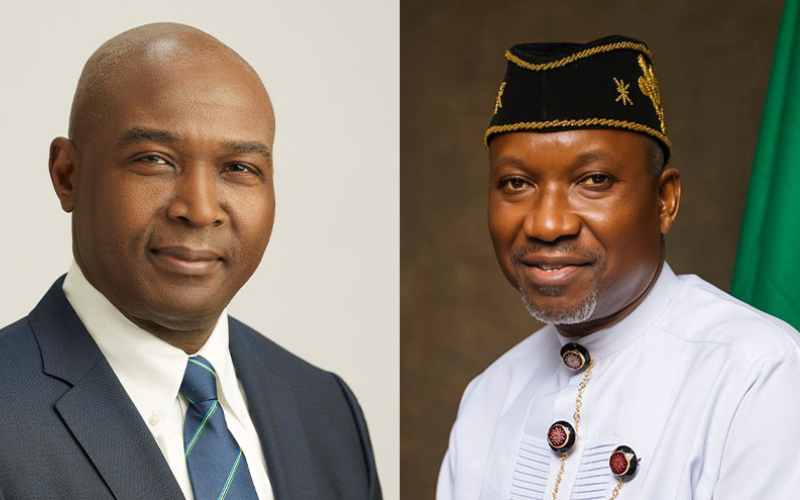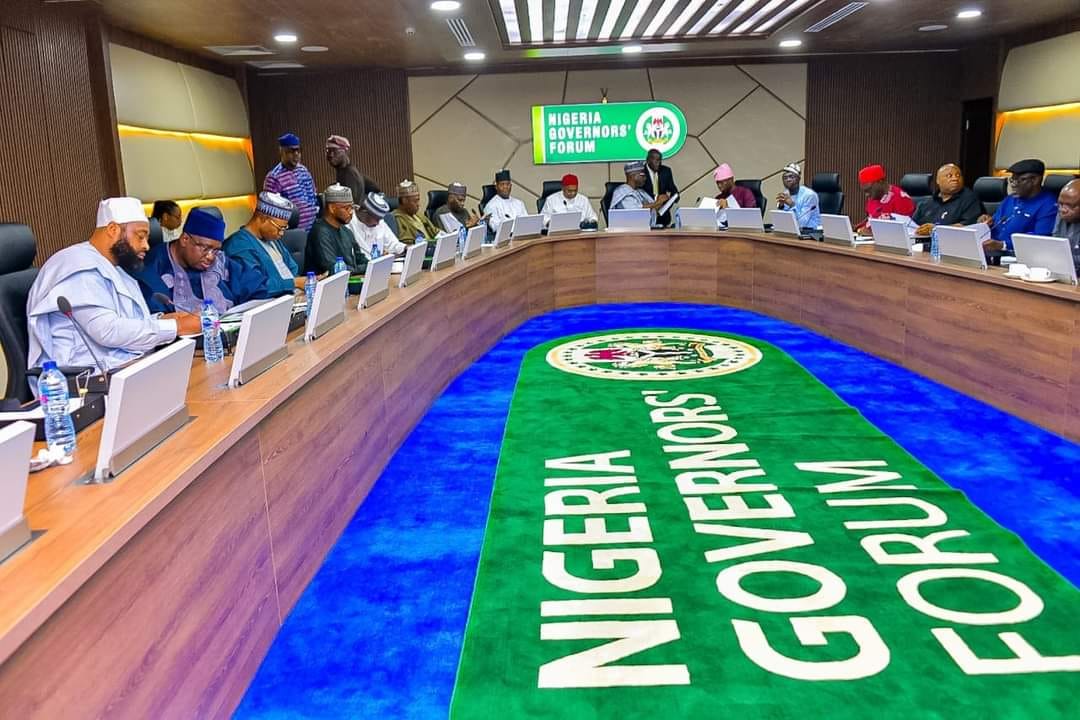By Mobolaji Sanusi
“The government of the people, by the people, and for the people shall not perish from the face of the earth.” — Abraham Lincoln (16th US President in his globally acclaimed less than two minutes Gettysburg address on November 19, 1863).
From the blues, media reports of a coup scare engulfed the social media space with no affirmative statement from the government, thereby creating a miniature of an otherwise significantly huge issue. Sahara Reporters and Premium Times, both online newspapers, and another conventional newspaper, The Daily Trust, have dug deeply into the issue with other news platforms merely parroting what emanated from official quarters.
However, there are undeniable observations: The first being that Nigeria’s 65th Independence Day anniversary was cancelled at the dying minutes, for curious reasons; the second issue being that some top military brass were reportedly arrested. And despite the official reasons adduced for the anniversary cancellation and the tepid reasons for the arrests of the military officers, the real ‘why’ and for ‘what reasons’ surrounding the cancellation and arrests relating to the alleged coup conundrum has to be told, one day – and that may not be anytime soon.
To discerning Nigerians and other stakeholders in the Nigeria Project, there is more than meets the eyes in the coup scare. Whatever this might be, let it be known and very clear to all that military rule, under whatever guise, is unacceptable in Nigeria, again. Those coup-minded Nigerians, whether in the military or outside the military, should forthwith banish such ideas from their thought process because the air of democratic freedom being enjoyed today, even though far from being perfect, was obtained with the toil, sweat, tears and lives of patriots, particularly that of Bashorun Moshood Kashimawo Abiola. He paid the supreme price for us to enjoy the freedom that we have today.
Our President, Asiwaju Bola Ahmed Tinubu, GCFR, played a leading role in bringing forth this democratic rule, with others too numerous to mention for space constraints and for the fear of being accused of leaving out important names in a piece of this nature.
The beauty of the whole episode is the swift condemnation that trailed the reports of the alleged coup plot from Nigerians and the firm resolve that never again must we return to the dark days of military in governance.
So, it won’t be right to say that Tinubu doesn’t understand or appreciate the expectations of teeming Nigerians from their constitutional governments; federal, states, and even the local councils, put together. Being a federation, whatever challenges are being encountered by the country cannot be entirely put at the doorstep of any single individual.
Tinubu’s predecessors, including Olusegun Obasanjo, Umar Yar’Adua, Goodluck Jonathan, and especially Muhammad Buhari, contributed largely to the problems. Further from these personalities, current political actors at the federal, states and local councils have largely not helped in resolving the national problems because they have one thing in common which is self-centredness robed in the beautiful regalia of greed to amass everything for self at the expense of the greatest good.
This can’t be Tinubu’s lone blame because he can only appoint and work with Nigerians, not aliens, believed by him, to have the capacity to deliver. So far, some of them have not acquitted themselves well; but despite this, coup as an option can’t be the alternative because any recourse to such unconstitutional initiative will only aggravate the problematic situations that the current government is gradually trying to address.
Yours sincerely shares Thomas Acquinas’ thought when he declared: “No evil can be excused because it is done with a good intention.” Military rule, no matter the issues facing democratic governance, should not be condoned by all, and more importantly, military rule’s incursions into politics should not be allowed again in the nation’s rulership system.
Great men of intellect in governance and history have kind words for democracy. Papa Obafemi Awolowo, the immortal sage of immense political significance, once said in defence of democratic rule: “Democracy is in my humble view the best form of government and the rule of law man’s triumph against arbitrary use of power.” This quote remains indelibly true nearly four decades after the demise of this foremost nationalist/political juggernaut that ever passed through the territorial jurisdiction called Nigeria.
John Locke was unsparing in his defence of democratic rule. Being an evergreen philosopher of global renown, he enthused that nothing can justify the tyranny of the military’s gun-wielding khaki boys no matter what the imperfections of democracy might be. Locke’s expectations of democratic rule are for it to be “a neutral conduit for the existence of the power of the majority.”
Locke went further that unlike military rule with its martial laws, a democratic system allows “a non-coercive means through which individuals can come to agreement on the laws that they are to impose on themselves.” Such laws in Nigeria of today cannot be military decrees that frown at being subjected to the compulsory burning crucible of legislative and judicial processes in any modern society that has the misfortune of having them in power.
John Adam’s aversion for any other forms of government including military rule was well explained when comparatively, he said: “I cannot say that democracy has been more pernicious, on the whole, than any of the others. But, its atrocities have been more transient; those of the others have been more permanent.”
From the foregoing, it is clear that democracy is inviolable and should be allowed to evolve over time, and the military should allow civilians to make mistakes and correct such mistakes without military’s outlawed interventions. All over Nigeria, the capricious stains of military rule that did more harm than good to the general wellbeing of the people of this country are apparent for all to see.
Whatever yours sincerely has against military rule and some of the unscrupulous elements in its fold that allegedly contemplated to upstage a democratic government should be a reminder to our rulers at all levels not to create incentives for unpatriotic elements to instigate military incursion. Historically, military coupists exploit society’s vulnerable situation, in any country, as yardstick for their criminal endeavours.
Our government needs to be discerning more than ever before because of the coup scare. Socrates, a Greek philosopher born 2,500 years ago, gives us reasons to embark on self-reevaluation at institutional and personal levels if we ever desire meaningfully critical developments and more importantly, if we truly want to forestall negative inclinations. Socrates is globally considered one of the wisest men that ever lived because of his precocious attitude of seeking questions to his own ignorance through relentless self-examination. This paid off for him, leading to his monumental contributions to mankind.
Our rulers should, from time to time, make personal reflection a must in their governance style, to determine whether as leaders, they’re being fed by aides with realistic situations of things or just being deceived, with concocted statistics and paper achievements, in order to make them deludingly elated. The latter is a perilous situation that any good leader should consciously avoid.
Further from the foregoing is a popular aphorism that goes thus: ”Fools have answers. The wise have questions.” And in view of this, yours sincerely, like other thoughtful people consider it pertinent to ask: God forbid, if the alleged unlawful plot had materialized, will Nigerians on the streets jubilate or not? This is a billion-dollar question that every right thinking Nigerians, including those in government, should be asking.
Let the government make amends where necessary. The president also needs to reform, urgently, its security architecture in view of the rumours of this coup scare. This is an urgent assignment in the overall interest of all right thinking Nigerians. Additionally, most governors across the federation should quickly reconsider their less than satisfactory approach to governance that has left a larger percentage of their constituents in abject penury. Their condemnable leadership oversight couldn’t have been a presidential responsibility. Every leader at all levels including the local councils should bear the consequences of his/her actions.
This also can be ensured if the country truly makes elections to really count. Political parties’ internal democracy is also crucial in this regard. Virtually all of currently existing political parties lack internal democracy. Too bad! One of the startling virtues of democracy is periodic elections that give the people the licence to determine whether or not anyone in power should continue to govern them or be replaced peacefully at designated intervals. This assignment rests largely on the desk of the henchman of the nation’s electoral body that is expected to discharge his duty with honour and integrity. History is watching but one thing is absolutely clear: Democracy remains, like Awolowo rightly observed several decades ago, the best form of government and so shall it remain.
Indeed and action forthwith, all arsenal should be deployed by especially privileged stakeholders in government to ensure that in Nigeria and the world generally, Abraham Lincoln’s prophecy that the “government of the people, by the people, and for the people shall not perish from the earth” does not end in vain. Nigeria’s democracy must endure and not die. Long live our democratic government.
•Sanusi, former MD/CEO of Lagos State Signage & Advertisement Agency, is currently the managing partner of AMS RELIABLE SOLICITORS.




